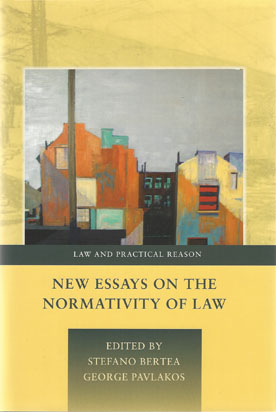
H.L.A. Hart once argued that a theory suppressing the normative component of law "fails to mark and explain the crucial distinction between mere regularities of human behaviour and rule-governed behaviour." This is a serious drawback for a theory of law, since an important part of the legal domain is concerned with rule-governed conduct and may be expressed only by use of such notions as norm, obligation, duty, and right. These notions require us to acknowledge the existence of a normative dimension in the legal domain.
This collection of essays is intended to contribute to the study of normativity in law by staging a thorough discussion of the notion approached from three directions: the theory of planning agency, legal conventionalism and the constitutivist approach. Though not offering an exhaustive picture of the current debate on the normativity of law, the book is meant rather to provide the reader with some authoritative statements of some widely discussed families of views of legal normativity.
Thus, the volume encourages a dialogue between different traditions of study and stimulates those who would not otherwise look outside their tradition of thought to engage with new ideas. In performing these tasks the volume instantiates a distinctive interdisciplinary and multidisciplinary character. For, the idea underlying the collection is that no general theory of normativity can be put forward unless it addresses distinct, albeit interrelated, disciplines such as the philosophy of mind, metaphysics, theory of action, meta-ethics, social philosophy, political theory, ethical theory, and jurisprudence.